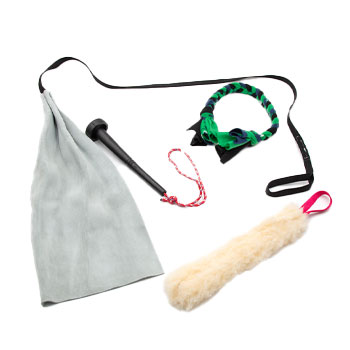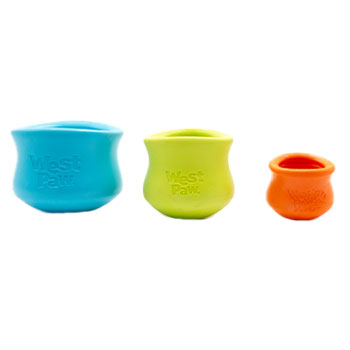April 21, 2011
We have an adult rescue dog that we want to crate train like your video instructs. Is it different crate training a puppy than an adult dog?
Full Question:
A question has arisen about crate training. We do have a cat, and intended to use the info in your article on introducing dogs to cats. Right now we always keep them in separate rooms if they are in the house. However, since our dog is a rescue, he's never had experience with crates at all. You have a lot of info about crate training for puppies, but we're unsure how to proceed. Our dog is already housebroken at 20 months. We were considering beginning to offer his regular food in the crate and to acquaint him with it before we go through the cat/dog intro. We don't want to have him associate the crate only with the cat situation, if that's at all possible. How should we proceed?Thanks,
Leslie

 Ed's Answer:
Ed's Answer:
There is no difference between housetraining an adult dog than a pup. They may not like it but - tough. They are dogs and a crate is not abusive. Put the dog in the crate and if he cries don’t take him out until he is finished crying. If you want steps - put food in the crate and feed him there (like you are doing now).
Then toss a small piece of food in and make him stay for a few minutes with the door closed and if he is quiet mark it and then let him out. Extend the stay and never let him out if he is crying.
During the extension of time toss a toy with an opening that you can put crème cheese in or a knuckle bone and see if he keeps busy. They keep him in their for an extended period of time while you are home.
This is not rocket science - just think about the simple steps you can take.
Then toss a small piece of food in and make him stay for a few minutes with the door closed and if he is quiet mark it and then let him out. Extend the stay and never let him out if he is crying.
During the extension of time toss a toy with an opening that you can put crème cheese in or a knuckle bone and see if he keeps busy. They keep him in their for an extended period of time while you are home.
This is not rocket science - just think about the simple steps you can take.
86% (6 out of 7)
respondents found this answer helpful


Can't find what you're looking for?








